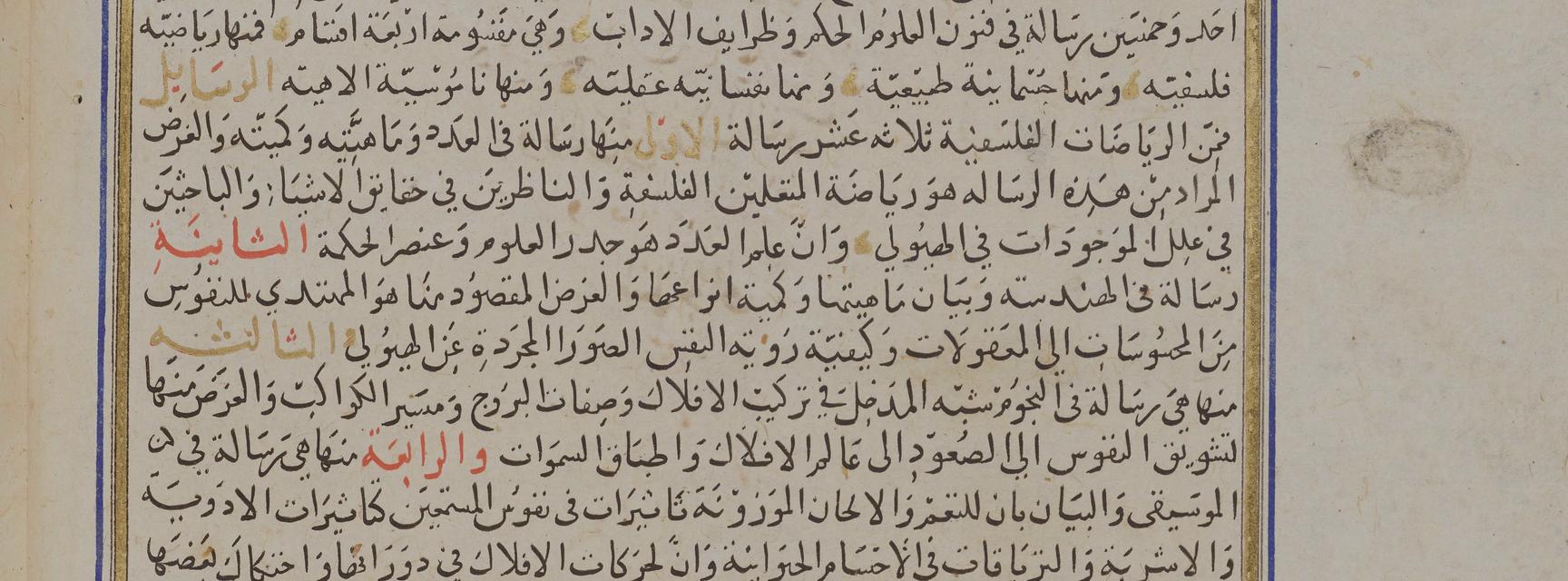Arabic BA (Hons)
This course is designed for students who do not have previous exposure to the language. It may not be appropriate for those who have studied the language beyond an introductory level.
First Year: Foundations of Language, History, and Culture
In your first year, you will have Elementary Arabic classes for 10 hours a week every term, and you will attend lectures on Islamic History and Culture, which provide a broad overview to the region you will be studying. You will have tutorials—meetings with a tutor where you can discuss and talk in depth about your ideas on what you are studying—for which you will write ten essays over the course of the year. On your third term, towards the end of your first year, you will need to sit and pass Preliminary Examinations in these subjects.
Second Year: Study Abroad
You will spend your second year abroad. Our students currently go to an approved course of study in either Jordan or Tunisia, where they carry on learning Modern Standard Arabic, and have the opportunity to learn the local dialect. They will also gain exposure to Classical Arabic. Our students report that their language skills quickly improve while on their year abroad, and that by living and travelling in the Arab world, their understanding of the culture also deepens.
Third and Fourth Years: In-Depth Study and Options
On returning to Oxford for your third year, you will begin studying towards your final examinations. You will continue to receive Arabic language classes, and study the following core subjects:
- Arabic comprehension and translation into English
- Composition in Arabic
- Arabic Literature (Classical and Modern)
- Islamic History, 570-700
- Islamic Religion
What subjects are available on any given year can change depending on staff availability—our tutors often draw on their particular area of expertise for the optional subjects they teach. You can see an up-to-date list of options for this year on the BA Arabic Handbook.
At the start of your third year, you will also be able to choose between carrying on with Arabic on its own, or picking up another language within the Faculty of Asian and Middle Eastern Studies. If you choose to focus on Arabic only, you will have a choice of two more subjects out of a wide range of options. You will have weekly classes and seminars, and write essays on subjects such as:
- The Middle East in the Age of Empire, 1830-1970
- Sufism
- Art and Architecture in the Early Modern Empires of Islam
- Islamic Law
- Mass Media in the Middle East
- Mountains, Religion, and Revolution in the Islamic World
Study Another Language Alongside Arabic
Instead of choosing among the additional subject options, it is possible to start learning another language beyond Arabic. By the start of your third year you will be able to choose between the following options:
- Akkadian
- Aramaic and Syriac
- Armenian
- Early Iranian
- Hebrew
- Hindi/Urdu
- Persian
- Turkish
You will study this language to an intermediate level, and will be able to read and translate from original texts. You will usually also learn about the language’s historical and cultural context.
All BA Arabic students will also write a dissertation of no more than 15,000 words on a topic of their choice.
Beyond Oxford: Where a BA in Arabic could take you
The BA Arabic at Oxford is more than just a way to gain linguistic proficiency: the study of the language is placed in its cultural context, and graduates will be equipped with not only expertise in Arabic but also knowledge of the regions in which it is spoken.
Many graduates have obtained jobs in diplomacy, journalism, broadcasting, banking and business, which are in some way connected with the Middle East. Some have gone on to become translators, and others have also gone on to further study to pursue academic careers.




